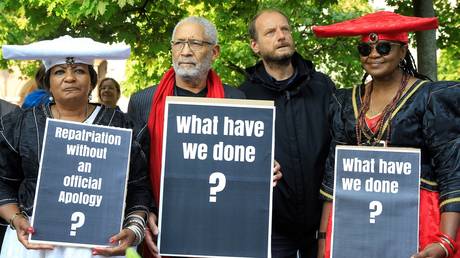
Namibian descendants of victims of the genocide committed by Germany during its colonial rule have rejected a deal made by the governments of the two countries as a “slap in the face” that has “no regard for the human lives lost.”
On Friday, the German and Namibian governments announced a $1.3 billion financial aid package that will be disseminated over a 30-year period as part of a deal that saw Berlin formally recognize the genocide crimes it committed during colonial rule.
The funds, which were intentionally not called ‘reparations’ by the German government, will fund development projects, rural infrastructure and energy and water supplies.
The request from German Foreign Minister Heiko Maas for “forgiveness” from the descendants of the victims has been rejected, with people related to those who lost their lives in the massacres calling it a “slap in the face” that was negotiated without speaking to them.
“It was handled in a very clumsy manner. There was no regard for the human lives lost,” Namibian economist Salomo Hei told reporters.
In its deal with Namibia, Germany formally acknowledged the actions of its citizens against the indigenous Herero and Nama people between 1904 and 1908. At least 60,000 Herero and 10,000 Nama were exterminated on the orders of the German military in the region, with thousands imprisoned in concentration camps.
The rejection of the deal by families of the victims comes after ethnic leaders condemned the proposal as “an affront to our existence” and an “insulting amount” for the lives lost.
The Council of Chiefs in Namibia released a statement on Monday decrying German officials for failing to take the view of ethnic leaders and groups “into serious consideration.”
Like this story? Share it with a friend!




